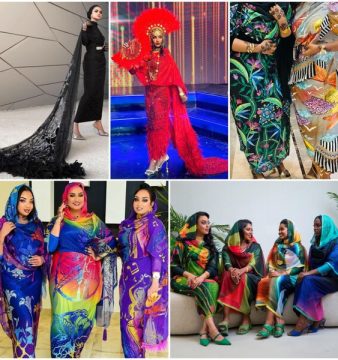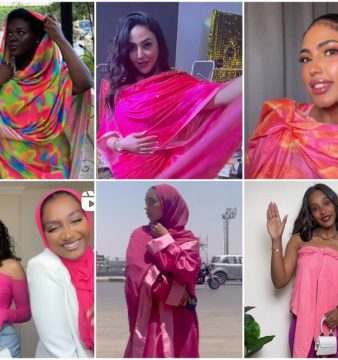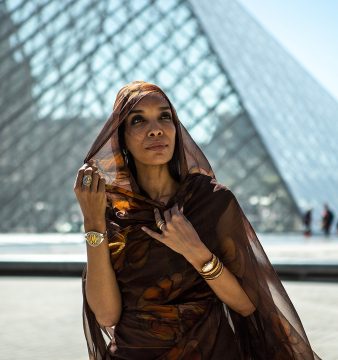The Natural Hair Movement in Sudan
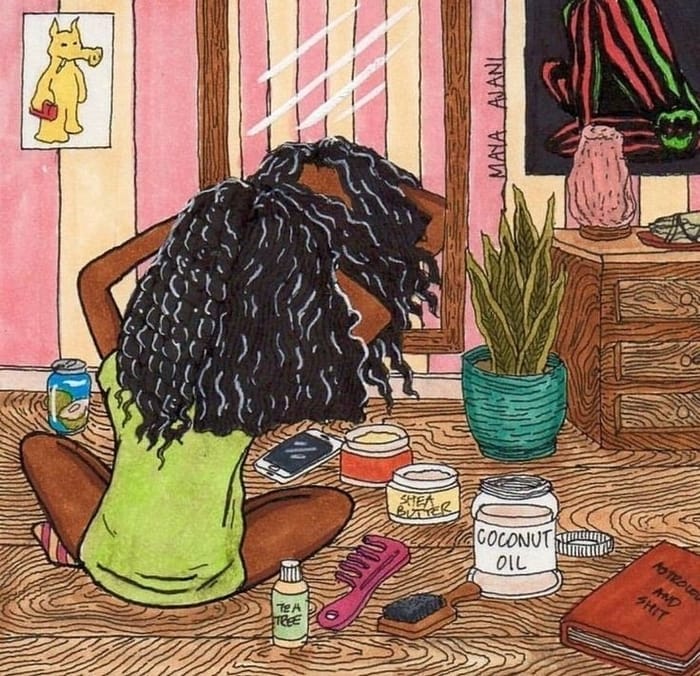
Sudan, being a diverse Afro-Arab country with multi-ethnicities, is home to a wide variety of skin shades, hair textures, and overall, looks.
However, since the early 1950s, former regimes and society have been enforcing a national identity that is more Arab than African, leaving many of Sudan’s African tribes being marginalised and discriminated against. As a result, throughout the years, it has led to several civil conflicts and wars especially in Darfur.
Moreover, it created a national consciousness that being Arab is better than being African. As a result, many Sudanese people began to adopt Arab-influenced cultural practices, characteristics and beauty standards. Many women and young girls use skin bleaching creams to change their dark skins to lighter shades, and use hair chemicals to straighten their curly or Afro hair.
These are acts to gain social acceptance because in the greater Khartoum this could mean better employment and marriage opportunities. In addition to this being discriminatory and self-loathing, it creates pressure on Sudanese women or young girls to adhere to society’s submissive and degrading beauty standards.
However, we’ve seen this problem globally. Now, there’s a global natural hair movement where women especially those of African origin are embracing their natural hair. The movement is a sisterhood of black and bi-racial women focused on encouraging women to celebrate and enjoy their natural beauty. In Sudan, the movement has just begun, taking baby steps towards achieving awareness about the beauty of natural hair.
With social media and movements such as women empowerment and fourth-wave feminism, which ensures liberation and individualism and encourages women to have control over their bodies, there has been significant impact on beauty standards in Sudan. In recent years, many women in Khartoum started wearing their hair naturally, due to what they have seen on social media about the global natural hair movement. I am one of those young Sudan women who were impacted by the movement. I began my “curly hair journey” in 2015. However, I continued to use heat and straightened my hair because it was the norm for many young women in Sudan.
The natural hair movement wasn’t fully embraced in Sudan until recently, where we began to witness girls identifying their natural hair as part of their personal style or identity. In most cases, they were referred to as liberals, feminists or activists, and until this day, curly or natural hair movement is associated with the feminist movement.
To date, for many Sudanese women and young girls, it’s still a challenge to celebrate and enjoy their natural afro-textured hair. Within their communities, they would still hear comments such as ‘Why is your hair so messy?’, or ‘You will never find a husband with your hair looking like this!’. However, there are many initiatives and social media pages run by young Sudanese women to not only support women with curly hair by providing consulting and natural hair products, but to also change these degrading beauty standards society imposes on Sudanese women.
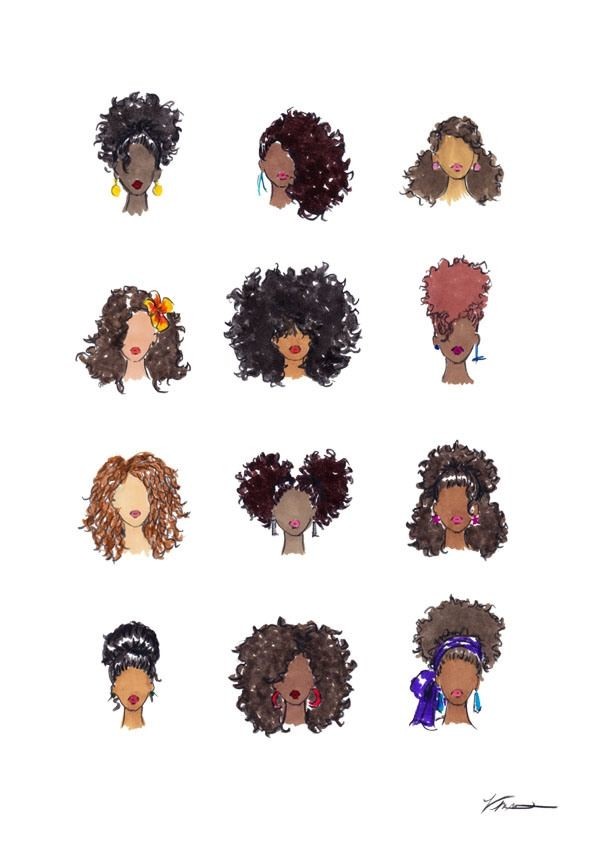
Mizlem Hair Package
Mizlem Hair Package is a natural hair products brand established in 2018 by Lujain Ihab, a business student in Ahfad University for Women (AUW). “when I realised that the heat and chemicals I used to straighten my hair have damaged my hair. To repair this damage I began to learn about hair types and natural remedies, and started experimenting on hair and modify the remedies to suit my hair during the process”. She then found the right remedies and treatments for her hair and as a result, for Sudanese females with curly hair.
She now makes all the products by hand – all dedicated to natural hair and curly-hair friendly, boosting hair health.
Her products are made from natural oils and local ingredients such as wadak (lamb fat that is melted and mixed with fragrances and spices), majmou’ (an oil based perfume commonly used in making local perfumes), and sesame oil, which is widely used in Sudan in cooking, as well as in local beauty products. She insists that while using her products, girls must not apply any heat or chemicals to their hair. Many girls have tried her products and experienced really positive results and shared them in social media. Her natural hair products are accessible in Sudan with reasonable prices.
In addition, Ihab created a WhatsApp group where girls can chat together and benefit from each other’s experiences. She also sends them voice notes on a regular basis educating them about the science behind healthy hair.
What distinguishes Ihab’s brand is she works towards changing the common belief about hair in Sudanese society and builds girls’ confidence about their natural hair and beauty, as well as positively impacting their relationship with their hair.
Natural Treasures
In September 2018, Asmaa Ali or Asoom created a Facebook group called Natural Treasures to share natural hair masks recipes and advice on how to take care of hair and embrace its beauty. The group has nearly 400,000 members, creating a community for Sudanese women to share hair care tips, knowledge and experiences. She also created small business opportunities for many girls by sharing her hair mask recipes with them, which they can later make and sell. In addition, the group helps many Sudanese girls learn how to take care of their hair and tend for its health. Most importantly, it made a significant impact on the mentality of young girls about embracing their natural hair and traits.
However, the founder Ali is the only one who is allowed to publish on the group, which limits members from sharing their stories and experiences. Another disadvantage is that Ali actually encourages girls to straighten their hair and use chemicals as long as they take good care of their hair by continuously applying hair masks and treatments. She claims that chemically “relaxing” the hair will not result in any hair damage as long as the girl uses hair masks three times a week.
Your Natural Hair Journey
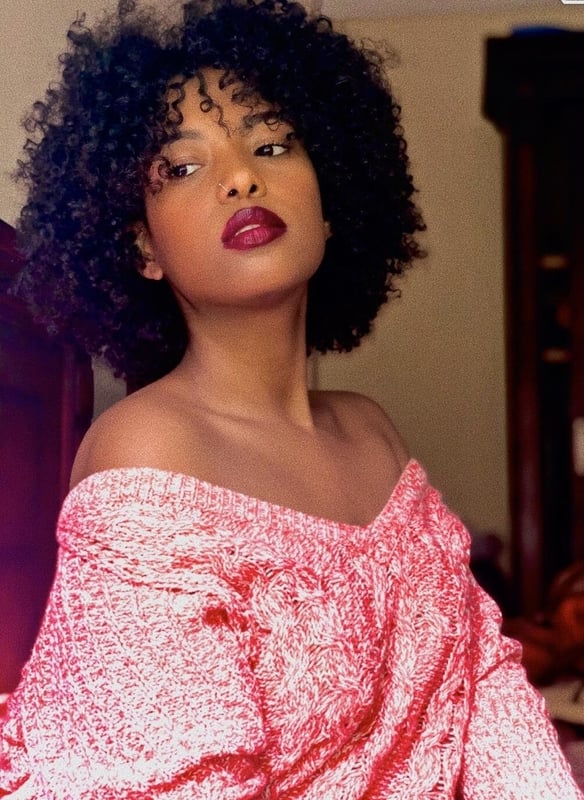
Aiming to create a platform to encourage Sudanese girls to embrace and care for their natural hair, Mayada Kamal, a 22-year-old marketing student as well as a model and natural hair blogger based in Egypt, created the Facebook group called Your Natural Hair Journey in 2020. The group is a place where young girls can exchange tips and knowledge as well as share their achievements with each other.
Before going natural, Kamal, like many other young women, applied protein and keratin treatment for her hair, as well as relaxing creams and heat. ‘I felt pressure from my family, school/college friends, and relatives to look a certain way with straight hair,’ she said. It wasn’t until she moved to Egypt in 2017 that she began to embrace her curls.
Today, Kamal is a curly hair model, and in addition to running the Your Natural Hair Journey Facebook page, she also the set up a YouTube channel along with an Instagram page to provide Sudanese women and other women with curly or textured hair to share her knowledge, experience and journey with her natural curls.
‘I believe it’s our responsibility to educate the coming generations about embracing their natural hair and not practice the same pressure that was practiced on us,’ Kamal said. She believes they must be guided to have a healthy relationship with their hair.
In addition to these Facebook groups, there also is Curly Girl Sudan (CGS), which shares curly hair methods and guides its members on their curly hair journeys. Moreover, there is Blossom, a group that sells locally made hair products made from natural ingredients for females with curly hair.
In recent years, there have been many similar Facebook groups and other social media pages, or online platforms that were created for the same purpose – to provide support, knowledge and consultancy for Sudanese women and their natural curls.
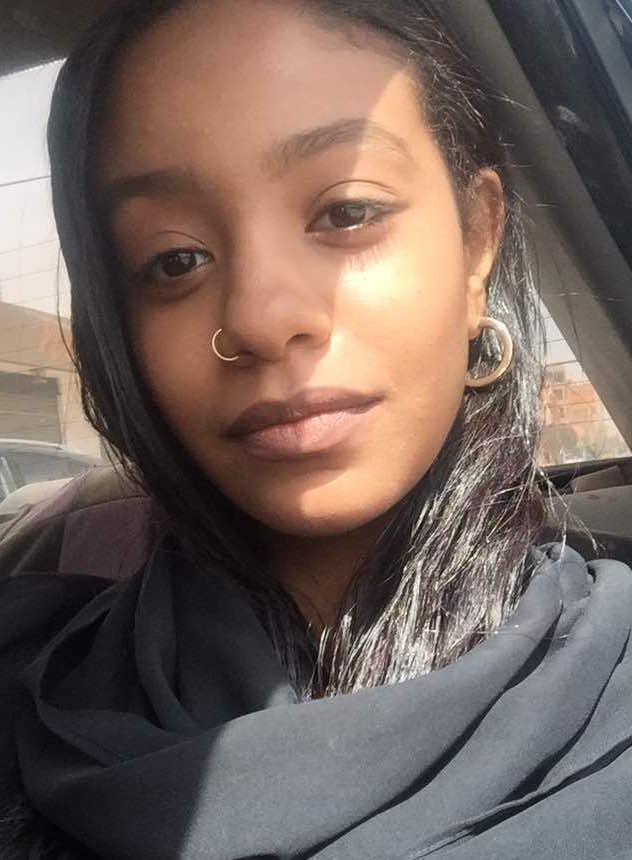
Born and raised in Omdurman, Thuraya Salih is a senior student at Sudan University of Science and Technology (SUST) and an amateur writer who is passionate about all forms of art.


